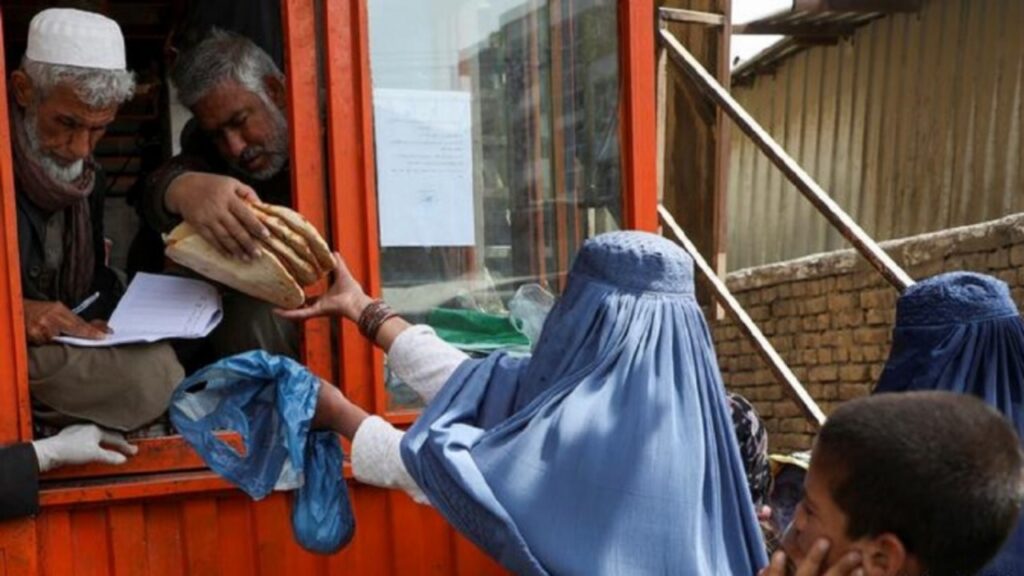Author: Mahdi Mozaffari
Following the suspension of U.S. financial aid to Afghanistan, the operations of dozens of aid organizations in the country have come to a halt. This has raised serious concerns about the humanitarian situation in Afghanistan, as these organizations played a crucial role in providing essential services to those in need.
According to local and international news agencies, Afghanistan’s caretaker government’s Ministry of Economy has announced that 50 aid organizations have ceased their operations in the country. These organizations were financially supported by the United States Agency for International Development (USAID) and were engaged in sectors such as healthcare, demining, education, and other humanitarian activities. Their operations were spread across various regions of Afghanistan, assisting vulnerable communities in different areas. The suspension of their activities follows the U.S. government’s decision to pause financial aid to most countries, including Afghanistan, for 90 days.
Although, according to a Reuters report, U.S. Secretary of State Marco Rubio has ordered that “lifesaving” and “food aid” be exempt from this suspension, it remains unclear whether this exemption includes Afghanistan. This uncertainty has further fueled concerns regarding the future of humanitarian assistance to the country. The shutdown of these aid organizations could have severe consequences for the Afghan people, especially those who rely on humanitarian aid for survival. This situation calls for immediate attention from the international community and efforts to find sustainable solutions to ensure the continuation of essential aid to the Afghan people.
The Ongoing Hunger Crisis in Afghanistan and WFP’s Warning
The World Food Program (WFP) has warned of the dire consequences of reducing or cutting humanitarian aid to Afghanistan, emphasizing that this action could lead to extreme hunger for millions during the upcoming winter.
Hsiu-Wey Lee, WFP’s director in Afghanistan, expressed concern over the current situation, stating that many Afghans are surviving solely on bread and tea. Due to budget cuts, half of the 15 million people in need of food assistance will be deprived of aid during the harsh winter ahead.
According to Lee, this means that over six million people will likely consume only one or two meals a day—primarily consisting of bread and tea. This grim reality is what many people who are left without assistance are currently facing.
Lee further urged policymakers and donors to consider the needs of the Afghan people, especially women and children, highlighting that WFP has worked to reassure donors concerned about restrictions on women that aid is still reaching women and children in need.
According to United Nations statistics, in 2025, an estimated 22.9 million people in Afghanistan will require humanitarian assistance, and at least 15 million will struggle to secure their next meal.
UN officials warn that cutting or reducing humanitarian aid to Afghanistan will worsen hunger levels and put millions of lives at risk.
These warnings come as Afghanistan continues to grapple with multiple challenges, including extreme poverty, insecurity, climate change, and social and economic restrictions. The continuation of humanitarian aid is crucial to preventing a humanitarian catastrophe in the country.
Rising Malnutrition Rates
Child malnutrition has long been a serious concern in Afghanistan, but this year it has escalated into a full-blown crisis. Shocking warnings have been issued by the United Nations and other international organizations in this regard. According to a report by the UN Office for the Coordination of Humanitarian Affairs (OCHA), the number of children under five suffering from malnutrition in Afghanistan is expected to rise to 3.5 million in 2025. Over the past five years, three million children under five have already suffered from acute malnutrition.
These statistics highlight the severity of the crisis and the urgent need for immediate action.
One of the main factors exacerbating this situation is the suspension of U.S. financial aid to Afghanistan, which has significantly reduced funding for humanitarian programs. OCHA has called for continued aid, stressing that humanitarian assistance can save children from hunger and malnutrition by providing them with consistent and nutritious food. Previously, the United Nations reported that over 12 million children and breastfeeding mothers in Afghanistan face malnutrition.
Additionally, the rise in poverty and unemployment following the caretaker government’s takeover has worsened the situation, leading to an increase in malnutrition rates among children and breastfeeding women. Many families, due to dire economic conditions, are unable to provide adequate and nutritious food for their children. At the same time, those suffering from malnutrition lack access to sufficient healthcare services, and this year alone, dozens of people have died due to the suspension of health aid.
This crisis is not merely a food-related issue; it is also a major health emergency that requires urgent and comprehensive attention.













